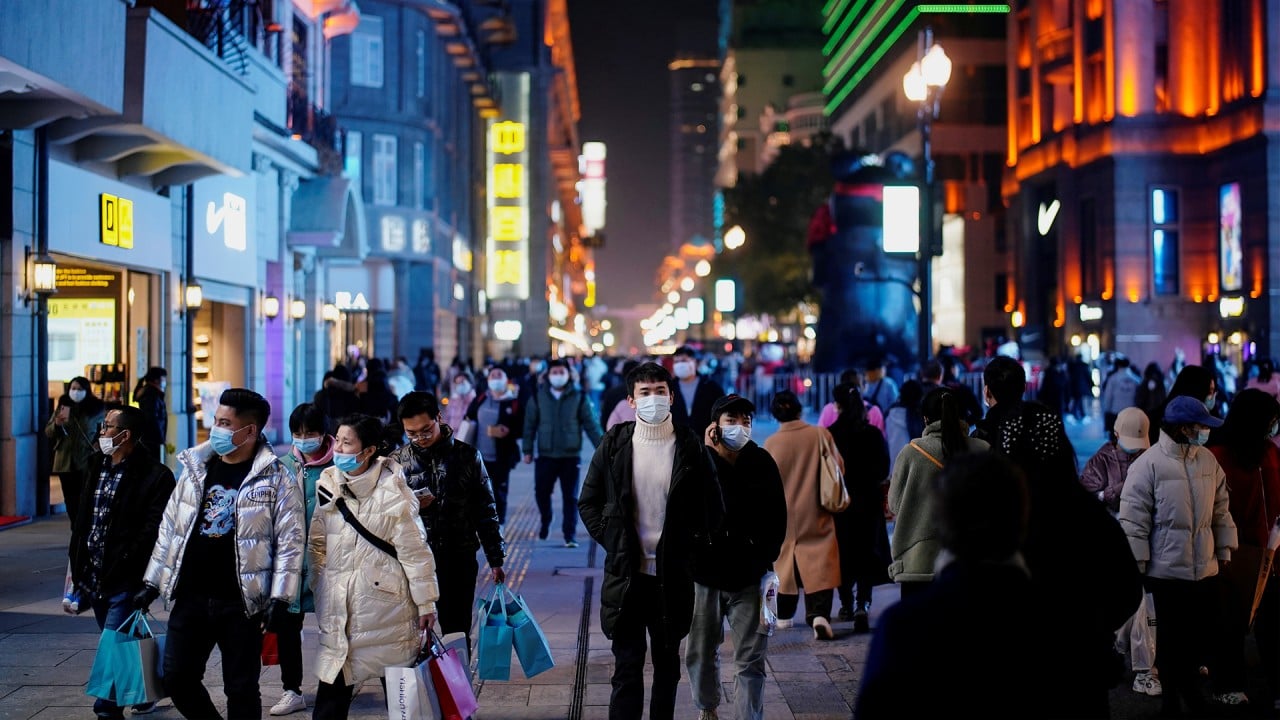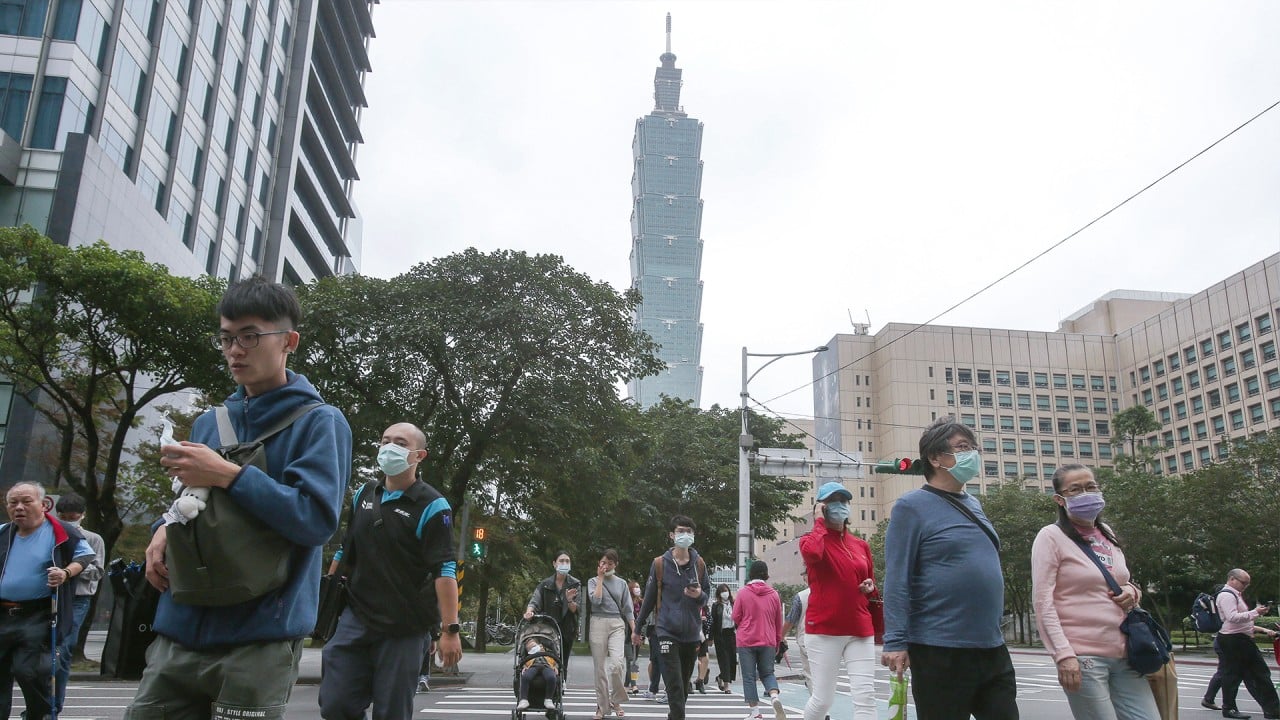Taiwan’s coronavirus success, job opportunities lure foreigners to talent-thirsty island
- Taiwan is becoming increasingly attractive for expats, with the number of foreigners obtaining residency permits and entrepreneur visas climbing in recent years
- The island is tempting international professionals with its successful handling of the pandemic, its media freedoms and ‘gold card’ scheme for skilled workers

When Tom Fifield first visited Taiwan as a tourist in 2008, it did not take him long to realise it was the place for him.
“One of the earlier experiences that really struck home was standing on a street corner and looking a little lost,” Fifield said. “Every single time without fail someone would come up and use their best attempt at English and try to help me.”
So when the former Melbournian got a remote job as community manager for the OpenStack Foundation, which backs the cloud computing platform OpenStack, he moved to the capital Taipei in 2013.
Fifield eventually launched a corporate management consultancy and, in September, the government made the rare offer of Taiwanese citizenship because they saw him as a “high-level professional”.
Fifield might be the envy of expatriates today. Taiwan has one of the world’s smallest Covid-19 caseloads, despite its population of 24 million and proximity to the original epicentre of the coronavirus, mainland China.
At the same time, visa rules are easing as Taiwanese officials warm to foreign talent, particularly Silicon Valley types drawn to the island’s 50-year strong reputation as a global tech hardware hub and journalists covering Greater China.
“It’s been amazing to see an accelerated increase of foreign professionals, some who had previously been unfamiliar with Taiwan and now find themselves weighing the possibility of staying in Taiwan for the long term,” said David Chang, co-initiator of Crossroads, a Taipei-based event planning organisation and consultancy to foreign businesses.
A total of 792,401 foreigners had obtained Taiwan residency permits as of November last year, despite global travel restrictions, National Immigration Administration data showed. The figure was up from 785,341 for the whole of 2019 and 758,583 in 2018.

07:07
The places that successfully contained Covid-19 and why others are not following their lead
In the first 10 months of 2020, entrepreneur residency permits exceeded 820, up from 358 in all of 2019. Student visas issued in 2020 came close to 2018, though were slightly down on last year.
In addition, a total of 124 overseas journalists from 71 media outlets had been permitted to work on the island by the close of last year, up from 90 across 51 outlets in late 2019, according to the Ministry of Foreign Affairs.
Journalists were picking Taiwan to cover Greater China without living in the mainland, which they find increasingly hard to navigate legally, said Charles Chen, a legislator from the Chinese Nationalist Party (KMT).
China, which ranks 177 out of 180 countries on the Reporters Without Borders’ Press Freedom Index, expelled a number of foreign journalists last year.
While Taiwan’s press freedoms and business environment are luring expats, the island’s successful containment of the pandemic has also proved attractive.
Taiwan ended 2020 with a total of just 797 coronavirus cases and seven related deaths, according to the Taiwan Centres for Disease Control, while many countries were recording thousands of new cases each day.
Authorities capped the caseload by stopping flights from overseas, employing strict contact tracing and enforcing quarantines.
Hasnaa Fatehi arrived in Taiwan in January 2020 on a limited stay visa with plans to return home to Vancouver. She was in Asia scoping out work prospects for her medical device compliance firm QaraLogic.com and intended to visit Singapore, Shanghai and Hong Kong as well.

03:42
Coronavirus: How did Taiwan keep local Covid-19 transmissions to zero for over 200 days?
But as the first wave of the coronavirus began to ripple across the world, the 40 year old who was born in Morocco decided to stay and apply for a three-year entrepreneur’s residency permit. It was approved five weeks later.
“I had overlooked Taiwan, but because of the pandemic I was quote-unquote stuck on the island,” she said.
Others like Paul Whiteley made a beeline for Taiwan when the pandemic began ripping through the global economy.
In March, the 49-year-old performer and artistic director was in Australia when social-distancing rules began killing events. In the middle of one two-part live theatre performance the producers told everyone there would be no second half, he recalled.
Whiteley, who had already spent five years living in Taiwan, returned to the island in May, thanks to his Taiwanese entrepreneur visa that was still valid. Today he is doing weekly corporate entertainment gigs and children’s programmes.
The work and collaborative opportunities have exploded since I returned
“The work and collaborative opportunities have exploded since I returned,” he said.
Shelter from the Covid-19 pandemic probably ranked among the top reasons foreigners were applying for Taiwan’s “gold card” residency scheme, said Jonathan Liao, a representative from the Taiwan Employment Gold Card Office.
Applicants were particularly happy knowing their children could go to school in Taiwan, unlike in much of the world due to strict social-distancing rules, he said.
Since 2018, a host of expansions announced by the likes of Google, IBM, Microsoft and Qualcomm have given the island extra cachet among expatriates, according to Liao, adding they signalled that “surely there’s something good out there”.

02:12
Taiwan unveils record defence budget as China stands firm on claim to island
Taiwan stands to benefit economically from the influx of skilled professionals. Gold card applicants are screened for the capital or talent they could bring to eight professional fields, including tech, the arts, finance and education. There are currently 1,945 gold card holders in Taiwan, with around 250 from Hong Kong.
Self-taught programmer Ian Sinnott, 31, landed in Taiwan in 2019 for a “change of pace” after three years of working for a California cybersecurity firm.
Sinnott received a gold card based on proof of his previous income, but believes Taiwan wants foreigners like him to move in “if they’re floating around with a lot of ideas.”
He hopes to start his own company on the island after splitting with the partner of an earlier start-up, which taught people how to programme.
We need and welcome [foreign talent], plus it’s safe here during the pandemic
Taiwan, the economy of which has traditionally been led by manufacturing, has only recently shrugged off years of indecision about whether to open up to foreign talent in white-collar sectors for fear jobs could be lost among local people.
But in 2017, parliament passed the Act for the Recruitment and Employment of Foreign Professionals, which allowed foreigners – including freelancers – and their families to get visas and work permits more easily. The gold card scheme was hatched a year later.
“The window is open,” said Chen, the legislator. “We need and welcome [foreign talent], plus it’s safe here during the pandemic.
“This gives us a chance for us to adjust immigration rules. We need it to be more open.”